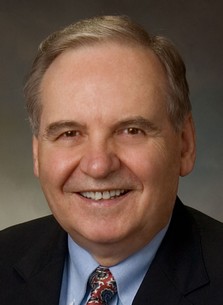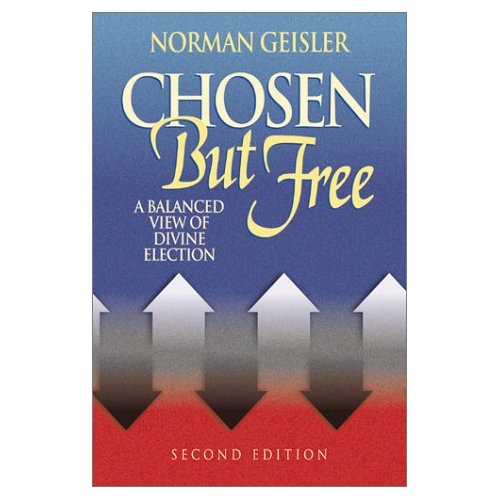Norman Geisler
Norman Geisler is a self-professed “Moderate Calvinist.” He doesn’t come right out and say it, but he’s actually a Compatibilist. He does a good job of exposing the Calvinist doctrine of Preterition with his Farmer Illustration (p.50), and although he does defend Free Will, he goes on to essentially affirm Determinism. He insists that this is “not a contradiction” (p.54), and that his “logic is flawless.” (p.43) The reality, though, is that Compatibilism is contradictory, as discussed here.
Geisler writes: “...God made the fact of freedom; we are responsible for the acts of freedom.” (Chosen But Free, p.23, emphasis mine)
This simple statement, very well accounts for the origin of sin, such as, “Where did Lucifer get his desire to sin?” God created the fact of freedom, but Lucifer is responsible for his acts of his freedom, and hence God has a logical basis upon which to hold him accountable and ultimately judge him. However, if you were to say that God’s sovereignty is the origin of Lucifer’s desire to sin, then you would have what he terms, “Extreme Calvinism.”
Geisler teaches that Election is “unconditional” from the standpoint that there is no condition by which God must give salvation to anyone, while there is a condition by which man must receive salvation. (p.69) Geisler readily recognizes the Extreme Calvinist perspective when he points out: “...when we understand that even faith to believe is an ‘unconditional gift to the elect,’ the so-called ‘condition’ of faith turns out to be no real condition for man at all. It is a ‘condition’ only in the sense that God has to place it there first before the justification will occur.” (p.68) In other words, if faith is a condition for receiving salvation, as most Calvinists would affirm, but that faith is the end result of Irresistible Grace, then any genuine sense of free, self-determination on the part of the individual is lost. (p.74)
According to Geisler, God’s sovereign prerogative is to have mercy upon whomever He will, and however He will, such that ‘whomever He will’ are those that He knows will freely come to Christ, and ‘however He will’ is by faith, since faith is what is pleasing to Him. (p.70)
However, Geisler is quick to point out that salvation is not “based on” any human decision. (p.51) This is where he distances himself from being an Arminian. He then adopts a view of determinate foreknowledge, which he describes as “determinately foreknowing.” (p.53) He maintains, “God is totally sovereign in the sense of actually determining what occurs, and yet man is completely free and responsible for what he chooses.” (p.53) He adds: “God’s predestination and human free choice are a mystery, but not a contradiction. They go beyond reason, but not against reason. That is, they are not incongruous, but neither can we see exactly how they are complementary. We apprehend each as true, but we do not comprehend how both are true.” (p.54) “There is no contradiction in God knowingly predetermining and predeterminately knowing from all eternity precisely what we would do with our free acts.” (p.55)
Here is a link to a Blog on this review.
Caution: If an author must continually remind you that their position is not a contradiction, then that should raise a red flag. In short, Norman Geisler is a Compatibilist, and that is absolutely contradictory. If one wishes to allege the opposite, then they have a duty to explain how, without simply differing to “mystery.”


